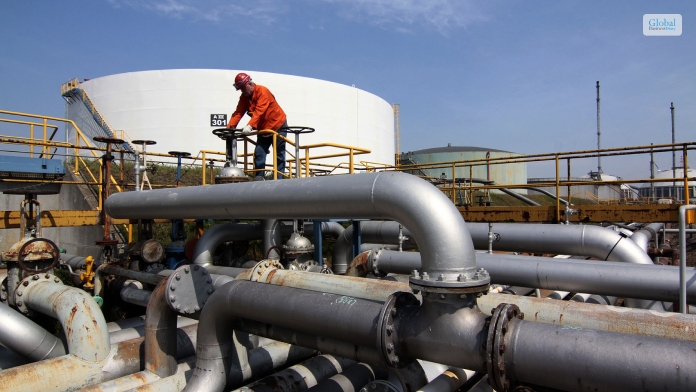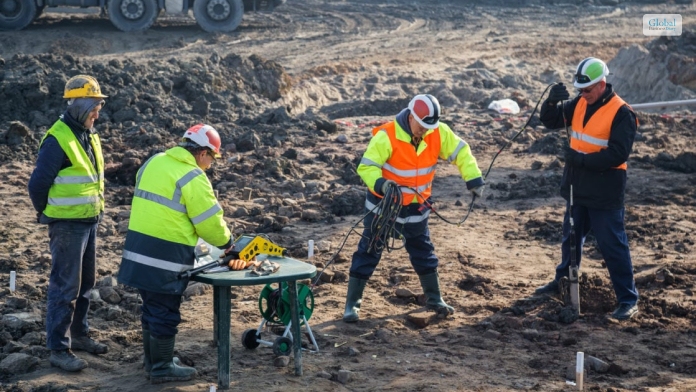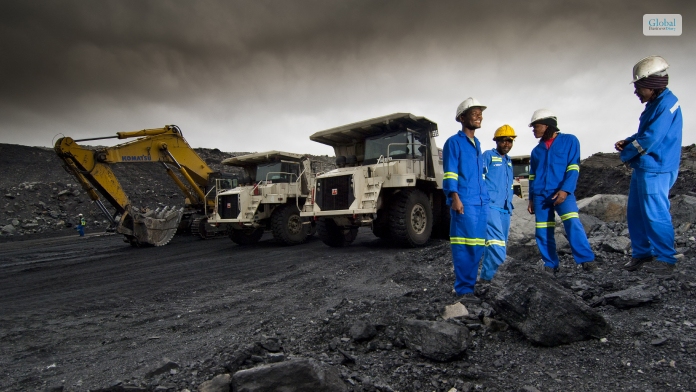Is Oilfield Services/Equipment A Good Career Path?

With time and the advancement of technology, we can not deny that oil and gas are the two most necessary things for our everyday life. Whether its the oil or its gas, we can not exist for one day without these two. So, there is also a need for workers who can work in the oilfield. In this article, our focus is on the question, “is oilfield services/equipment a good career path?”
To answer this question, I have to look into every aspect that the industry has or has not. There is no job in this world where you will see that everything is good. So, when you need to know whether a career is good or not, you need to compare the good and bad sides of the job. And then you will automatically know whether the job is suitable for you or not.
Is Oilfield Services/Equipment A Good Career Path?

There is no doubt that a career in oilfield services/equipment is rewarding. If you get into the industry, then you can expect more than any other industry. But, the job will be difficult for sure. So, if you are thinking of pursuing your career in this industry, then there are a couple of important things that you must know.
Why Is It A Good Career Path!

First of all, you need to understand that the oil and gas industry is a global industry. The industry is not limited to any area or country, the industry is huge, and the market is all over the world. So, there are so many opportunities that you will get. Secondly, there is a huge scope to travel to different locations. So, if you want to explore new places, then this job is attractive for sure.
Possible Job Responsibilities And Work

Different oilfield companies hire workers who can travel to remote locations. Most of the workers are technicians who can manage, control, and repair work. So, there is a huge for knowledge and experience in the latest technologies in the oil industry. But you don’t need to worry. The oil services and equipment have pretty exciting jobs. But, there is an important thing that you must know, they can be physically demanding.
Are Oilfield Services/Equipment Jobs Laborious?

So, when you are planning to get a job in the industry, you need to make sure that you are physically fit and can work for long hours in different locations. In addition, there can be situations when you might have to work in difficult conditions, like at minus 30 or 40-degree celsius.
Academic & Other Qualifications Needed

You should know that the industry has been growing, and there has been so much advancement in the last few decades. And recently, there have been so many technologies that are eliminating labor-intensive tasks. But one thing is sure. You will have the best opportunity to grow in the industry, and your career will be advanced for sure. So, getting a job in the industry requires a minimum high school diploma.
Other than a diploma degree, for technicians and other important roles, there is a bachelor’s degree required in the same field. So, you need to invest some money to get a diploma degree or complete your graduation. There are also certificate courses to get into the industry. You will learn to operate equipment, create reports, use different software, repair oil wells, and do other necessary work that is required in the oilfield.
Top Paying Jobs In Oilfields

As you are already of the answer to the question of whether the oilfield job is good or not. Now, look into the best-paying jobs.
1. Oil Field worker

The first and one of the best-paying jobs in oilfields is the role of the oil field worker. The work of these professionals involves the drilling and extraction of natural gas and oil for industrial and commercial usage.
- The average expected salary for this role is $55,107 per year.
2. Oil Field Equipment Technician

Another job in this category is the role of oilfield equipment technician. These professionals operate different equipment like pumps, different drills, and electrical equipment.
- These professionals usually earn a salary of $69,691 per year.
3. Geotechnical Engineer

Civil engineers are responsible for evaluating the lands and creating plans for mining and drilling for oil extraction.
- Their annual salary is around $75870 per year.
4. Energy Engineer

These professionals come up with different types of machinery and test different types of machinery for extracting resources. They also find out new ways to generate energy from raw materials.
- These professionals usually earn $88500 per annum on average.
5. Mining Engineer

The mining engineers are responsible for overseeing mining operations. They also work on different underground projects that require mining. They are well aware of some vital minerals and valuable resources of the earth.
- Mining engineers usually earn a salary of $93900 per year.
Apart from the ones mentioned above, here are some more jobs in oilfield services –
6.Director of Operations
7.Vessel Manager
8.Lease-Purchase Operator
9. Oil Tester
10.Director of Safety
11.Executive Account Manager
If you are planning to get a job, then you can expect a good salary. All you need is to have a bachelor’s degree in a specific subject and have the proper experience. There are also school diploma degrees and certificates to get into the industry. You need to invest your time and money to accomplish the required skills.
Frequently Asked Questions!! (FAQs):-
Here are some interesting questions and answers that most people tend to know.
Ans: When it comes to the oil and gas industry, the highest paying job is the Petroleum Geologist. You can expect that the average salary of a Petroleum Geologist is around $161,946 per year. The profession is highly valuable in the industry, and they have the responsibility for searching for oil and gas within the earth. They search and then discover the areas.
Ans: These are the highest paying jobs in the oil and gas industry.
⦿ Petroleum Geologist.
⦿ Drilling Supervisor.
⦿ Construction Manager.
⦿ Geophysicist.
⦿ Excavating Engineer.
⦿ Production Engineer.
⦿ Project Engineer.
⦿ Petroleum Sales Representative.
⦿ Gas Plant Operator.
⦿ Well Tests.
⦿ Lease Operator.
⦿ Mechanical Engineer.
⦿ HSE Manager.
⦿ Tank Cleaner.
⦿ Rig Welder.
⦿ Land Acquisition Analyst.
Ans: There are a couple of reasons why oilfields pay so much. First of all, the working areas are located in off-beat areas, so workers need to stay away from their families. Secondly, the working condition is very risky, and the work is also very difficult. Workers in the industry need to face 14/21 shifts. This sometimes means they need to work for 14 straight days, and then they take 21 days off. And this is very hectic for people who are new in this industry to face a tight schedule.
Final Words
I hope now you get the answer to is oilfield services/equipment a good career path. If you can stay away from your family and can overcome the difficult and hard work, then there is no doubt that the career is good. You will get a good salary, there are opportunities to visit and explore new locations, and the work is quite challenging. And lastly and most importantly, the market or the industry is never-ending. As the sources of oil and gas will stay another hundred years for sure, so you don’t have to worry about that.
Please give your valuable feedback.
Keep Reading:













